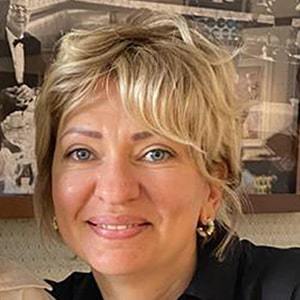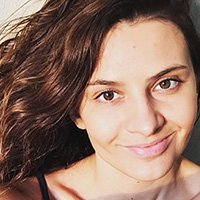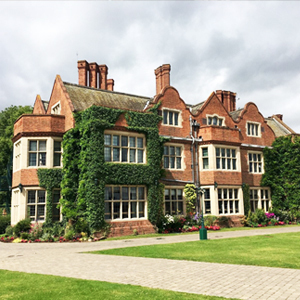Leave your phone number, we will call you back soon, answer all your questions and offer an individual program that is suitable for you and your child.
British boarding school: instructions for children 14+
Instructions for admission to a British boarding school from the founder of the company "Paradise" Natalia Strein.
"Hello ladies and gentlemen! My consultation today will be dedicated to those parents who would like their children to enter a British school at the age of 14+.
Unfortunately, your options are somewhat limited compared to those who gave up their children at the age of 13. The fact is that high school in Great Britain begins exactly at the age of 13: children prepare for it, take exams and then begin to study. At the age of 13, a child is given a huge number of opportunities, a lot of different objects. All this is done not in order to hammer his head, but in order for the child to decide what is really interesting to him and to make a choice at the age of 14.
At the age of 14, a program begins in British schools called GCSE and stands for "General Certificate of Secondary Education". That is, "general certificate of secondary education." Accordingly, for two years the child must study mathematics, natural sciences, English, as well as several subjects that he has chosen himself. The GCSE program lasts two years - grades 10 and 11.
ADMISSION AT 14 YEARS OLD
If the main school enrollment occurs when the children are 13 years old and they started in grade 9, then, as you can imagine, very few of them will want to leave school after this year. So there is a problem with places. If you are applying for the admission of a child at the age of 14 to an elite school, such as Shrewsbury, Repton, Malvern, Haileybury and so on, then you need to realize that the child will have to fight very seriously for free space. Accordingly, there are quite a few candidates, and the level of children should be higher in comparison with the level with which children enter at the age of 13. It is also necessary to understand that at the age of 13 it is not so difficult to do it, and at the age of 14 it is very difficult to do it.
As for admission at the age of 16, it is many times more difficult than admission at the age of 14. Firstly, because a two-year program has already been completed, and secondly, a very high level of English is required from the child - at least IELTS 6.5. So the child can really successfully study the A-Level or IB programs. Both programs are extremely complex, and even if we can say that IB is somewhat more complicated than the A-Level program, the latter does not imply "lying on the couch."
Believe me, the level of load in these programs is simply incredible, and it is even difficult for our children from the post-Soviet space to imagine how high the level of load is. Therefore, schools are very skeptical of those foreign students who apply to them in the sixth form. The sixth form is the last two grades of the school, grades 12 and 13. To enter the sixth form, a child must be very savvy from an academic point of view, and he must also have a very serious level of English. In fact, this is already a university education, if we compare it with two years of school in the post-Soviet space.
WHAT IF A CHILD HAS A LOW LEVEL OF ENGLISH?
If your child enters an English school at the age of 14, you need to be aware that if you are aiming for an elite school, then, of course, admission to it will be as difficult as possible. If the child does not have a sufficiently high level of English, then there is no point in applying. Even when a child has a low level of language, of course, there is also a school for him that will provide him with a sufficiently powerful level of language support.
The problem is that elite schools with big names have a rather high learning rate and they simply have no time to mess with children who do not know the language well enough. At the same time, there are a lot of excellent schools that do not “rattle” with names, but they can provide your child with the serious help that he needs so that he is more likely to get involved in the process and start studying the material. The material will be tricky since the British education system has recently been reformed. They have too many excellent students, so now they have changed the grading system.
Previously, for example, the equivalent of "excellent" would be a grade of 7, but today there are still grades 8 and 9. This is higher than "excellent", and only 2% of all children who study in the UK have such grades. They leave room for maneuver, and we assume that over time there will be another score of 10. Moreover, all the marks must be earned: from 1 to 7 will be displayed uncompromisingly. As you can imagine, a good level of English is required here, as well as a high level of intelligence if you want to apply to a school with a fast pace of learning.
I would also like to add that sometimes it seems to post-Soviet parents that if you send a child to a school with a big name, it will make him an excellent student or a motivated student. This is a misconception. To get into a great school, you first need to become an excellent student, since these schools are not "combines" for turning children into excellent students or Nobel laureates.
Some children who were demotivated by the education system in their home country, finding themselves in a highly motivated environment where it is interesting to study and where teachers are able to create a performance out of the lesson, will be able to find the desired motivation and find themselves. Children have a huge number of opportunities here: scientific experiments, sports sections, technological design workshops, fine art studios, computer centers, professional theater, textile circles, and so on and so forth. Therefore, in no case should you put an end to your child. My experience shows that 99% of the time, everything gets better when a child enters a British boarding school.
IF A CHILD IS 15 YEARS OLD
Many parents decide to send their child to study at the age of 15. I want to say that this is not the best option, but at the same time, this is the last carriage that you can jump into, in my opinion. The last carriage, because it will be a kind of a year of preparation of the child for very complex A-Level or IB systems, which he will learn when he reaches the age of 16. If he is already 16 years old, he must be sent to school for three years, and not two, as you might like. But if the child has a sufficient level of language, and this should be a very fluent spoken language and a good academic language, then, of course, there is an opportunity to try to enter the sixth form right away - in grades 12 and 13.
But what does admission to grade 11 give us? This is the class that children 15 years old usually go to. On the one hand, this is very inconvenient because this is the second year of the GCSE program. Naturally, children from the post-Soviet space who entered this program at the age of 15 will not be able to physically study fully, together with the British, all the subjects that those children study. This is simply impossible, because, firstly, they will need to constantly work on their level of English, they will have additional hours of English. Secondly, they will be able to take a maximum of five subjects, in contrast to the British, who study from 10 to 12 subjects, and in these subjects they will try to pass exams. Five subjects is the minimum number sufficient for British universities, and the program grades will be GCSE taken into account for admission to universities, despite the fact that there will still be two years before graduation.
ARE THERE MANY SCHOOLS THAT ACCEPTS 15-YEARS-OLD CHILDREN?
Yes. In order for a school to accept students at the age of 15, it must have a special one-year program for international students. If the school does not have such a program, then in most cases it will not be able to accept a child in grade 11. It is worth noting that a number of decent schools (including the most top and prestigious ones) have programs for those entering the 11th grade: one-year GCSE, Foundation Year, Pre A-level / IB.
THE CHILD WILL BE ABLE TO FIND HIMSELF
A child, having entered the 11th grade at the age of 15, on the one hand, will intensively study English, on the other hand, he still has the opportunity to try himself in a variety of guises. That is, he can enroll in those clubs that the school offers. For example, he will be able to achieve some success in sports and just find himself, because, in fact, many parents decide to send a child at the age of 15, not because the child is not just demotivated, but because the child does not represent who he is. would like to be in the future. He has no ideas. Of course, entering a British boarding house is really a way out. I know this myself as a mother, because my child managed to find himself and he is now studying exactly what he likes, from which he is completely delighted. I think this is the best reward for the money spent by parents.
IN CASE THE CHILD IS 16 YEARS OLD
If you nevertheless decide that your child should immediately enter the sixth form, if he is already 16 years old and you think that there is no point in wasting time and money for the third year, that is, for admission to grade 11 for preparation, I want so that you are aware of what is expecting a baby.
First, the first semester will be a kind of adaptation - not only to a new environment, a new team, but adaptation to a completely new type of education. The fact is that in England it is not customary to simply memorize what the teacher dictated to you, and then tell it at the blackboard. Discussions usually take place in the classroom, they are not called to the blackboard, and no marks are given for retelling a paragraph. The knowledge that the children show on independent slaves and tests is assessed, questions to which students are not given in advance.
Secondly, the questions can cover material that was covered a year ago or two or three years ago. Also, questions can be given that have not yet passed through the program, in order to see how a child can give, as they call it, an "educated answer", that is, how he, on the basis of existing knowledge, can try to solve a particular problem and justify this not subjectively, but scientifically.
That is, the analytical thinking of the child, his creativity, the ability to find a solution to a complex problem will be tested. It is not easy to repeat the decision that was voiced in the class, but to apply some of the methods, because the most important thing that the British education system pursues and what it teaches is the ability to think. Considering that this method has not taken root in our education system, your child will take a long time to adapt to the new way of learning. Thus, precious time is lost.
Many parents are mistaken that the child will allegedly take final exams only after two years of study - at the end of the 13th grade. It is important to understand here that, unfortunately, the child has only one year to pass the exams. This is grade 12. Based on these grades, he will apply to UK universities. At the end of the 13th grade, he will only have to prove that these assessments are really legitimate and he deserves the place that universities have already offered him.
Thus, after 12th grade, you take exams, then in the fall you apply to universities, and by January everyone has at least two or three "conditional offers" - conditional offers of a place. They become unconditional after the student has passed exams in 13th grade as well or better than in 12th grade. Therefore, you need to understand that in fact you need to send your child, hoping that he will pass the exams very well already at the end of grade 12. He will not have the opportunity to take a run. Of course, I recommend sending children at least at the age of 15, and if you send a child at 16, I insist on three years of study so that the child enters grade 11 instead of 12.
Finally, I would like to say that the child, unfortunately, loses if he enters the 12th grade right away. The fact is that on the A-Level or IB program, the child is already preparing exclusively for entering the university. He has no opportunity to reveal his talents, he has no time to look for himself. Getting into sixth form is good for those kids who know exactly what they want.
If your child has already absolutely decided that he will become a mechanical engineer, great! Moreover, he must have a good level of English. Let him act calmly, study, and then go to one of the leading universities. But if your child has not yet decided who he wants to become, then for him entering the sixth form will be a mistake, because you will need to choose four subjects that are studied in grade 12 - it's like a marriage without dating.
Or take the same IB program, it can be more versatile, but at the same time more complex. The child will not be able to properly prepare. He is deprived of elementary preparation, as well as the opportunity to reveal his talents and find himself. In addition, he is deprived of an interesting life in a British boarding house.
People sometimes think that if they send a child at 16, they will get what a child gets at 10, but unfortunately, every year there are less and less pieces of the pie. It's like with a car: you can buy the most expensive equipment, or you can buy the cheapest. The pyramid narrows all the time with age, and you get fewer opportunities.
Of course, a child who enters the sixth form no longer receives that amazing upbringing, that most interesting life that a British boarding school offers, as well as the full formation of character and disclosure of talents. So please make the right decision when sending your child. Hope this tutorial helped a little. Good luck and health to everyone!"






About "Paradise"

Expert assistance in selecting the right schools for your child in the UK, Switzerland, which have been our main specialization since 1996.
We also help you enter schools where teaching is conducted in English: in the United Arab Emirates, Spain, Austria, Thailand, Canada, and France.
Full support in the admission procedure: preparation for an interview, visits to selected schools accompanied by a Paradise employee.
Assistance in applying to universities in the UK, Switzerland, Canada: writing motivation letters, creating a package of documents, creating the right case for applying for a visa (to avoid rejection).